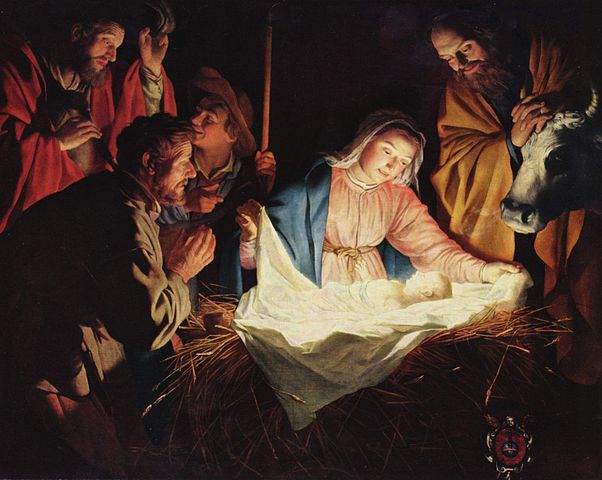
Image: Public Domain (Wikipedia)
Most Eastern Orthodox Christians celebrate Christmas Day on 7 January as they follow the Julian calendar rather than the Gregorian for liturgical feasts and occasions such as Christmas. When Pope Gregory XIII proclaimed it in a Papal Bull in 1582 proclaiming the new calendar, it took a long while for it to be full implemented (over 300 years). Some of it was due to countries being Protestant and not wanting to adopt a calendar proclaimed by a pope. Other reasons include local customs and traditions, and in some cases, governments just being slow to implement a major change (it meant resetting the calendar back 13 days when implemented). No one doubted the accuracy of the new calendar as it corrected the problems of the old Julian.
For Eastern Orthodox, it was a bit more complicated. First it was not exactly welcomed by the Eastern Orthodox bishops that the new calendar was issued by Pope Gregory XIII. It came with some additional items that Eastern Orthodox bishops did not agree with. In the end, it was decided while they had no problems with the calendar itself, the additional items Pope Gregory attached to his Papal Bull, they had to reject it. In 1923 the Congress of Constantinople attempted to correct it with a Revised Julian Calendar. This calendar synchronized with the Gregorian for nearly all the important dates (except Easter). The Orthodox Churches of Constantinople, Alexandria, Antioch, Greece, Cyprus, Romania, Poland, and Bulgaria accepted this. However, the Orthodox Churches of Jerusalem, Russia, Serbia, Ukraine, and Georgia rejected it. Easter poses a problem as well due to its calculations. The Revised Julian Calendar churches follow a different formula for Easter which all of the Eastern Orthodox churches that follow the Julian reject.
For Further Information
Christmas Worldwide, “Eastern Orthodox Christmas: Celebrations in Russia, Greece, and Ukraine – Christmas Worldwide,” Christmas Worldwide, last modified October 18, 2024, https://christmases.net/eastern-orthodox-christmas-celebrations-in-russia-greece-and-ukraine/.
“A Papal Calendar?,” Orthodox Church in America, last modified January 3, 2017, https://www.oca.org/reflections/fr.-lawrence-farley/a-papal-calendar.
“Explanation of the Julian Calendar,” St Andrew Fool for Christ Orthodox Church, https://www.standrewfoolforchrist.org/explanation-of-the-julian-calendar.html.
“Church Calendar – OrthodoxWiki,” https://orthodoxwiki.org/Church_Calendar.
“Revised Julian Calendar – OrthodoxWiki,” https://orthodoxwiki.org/Revised_Julian_Calendar.

